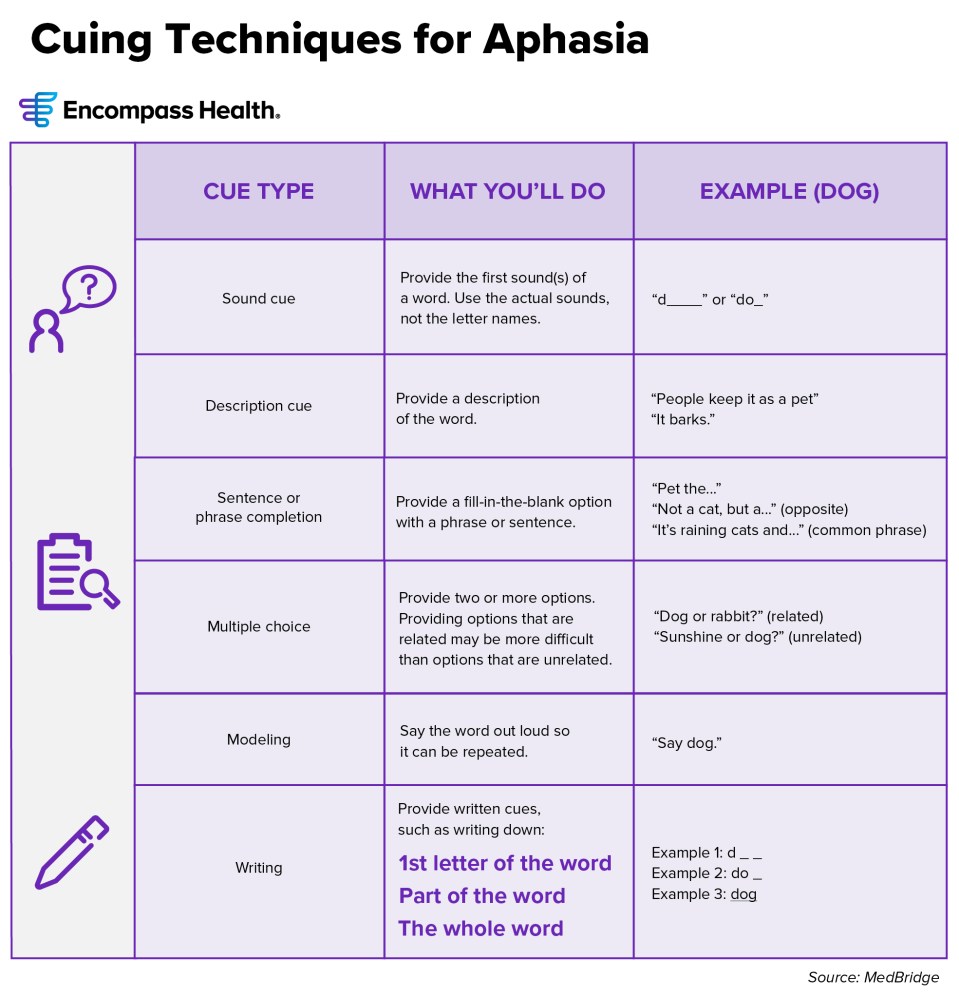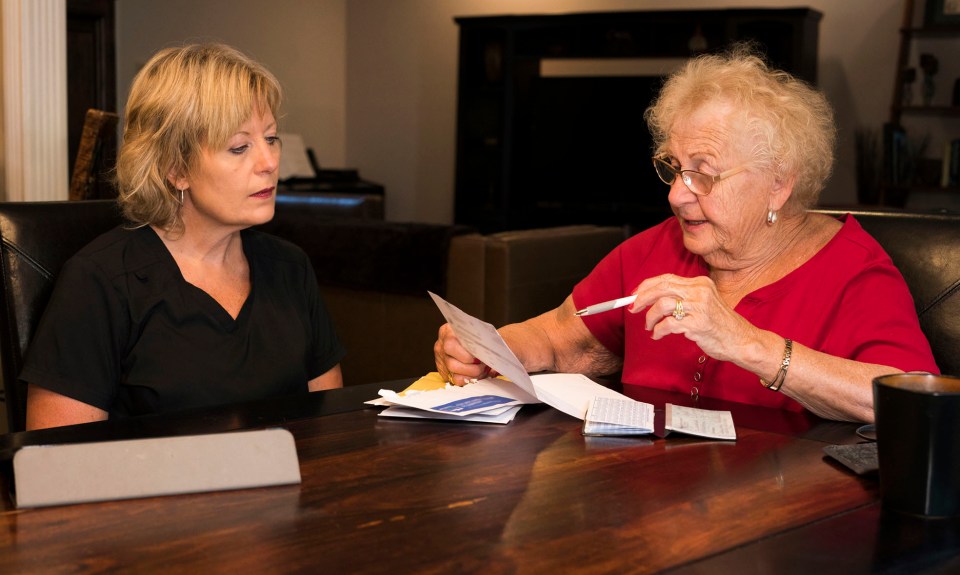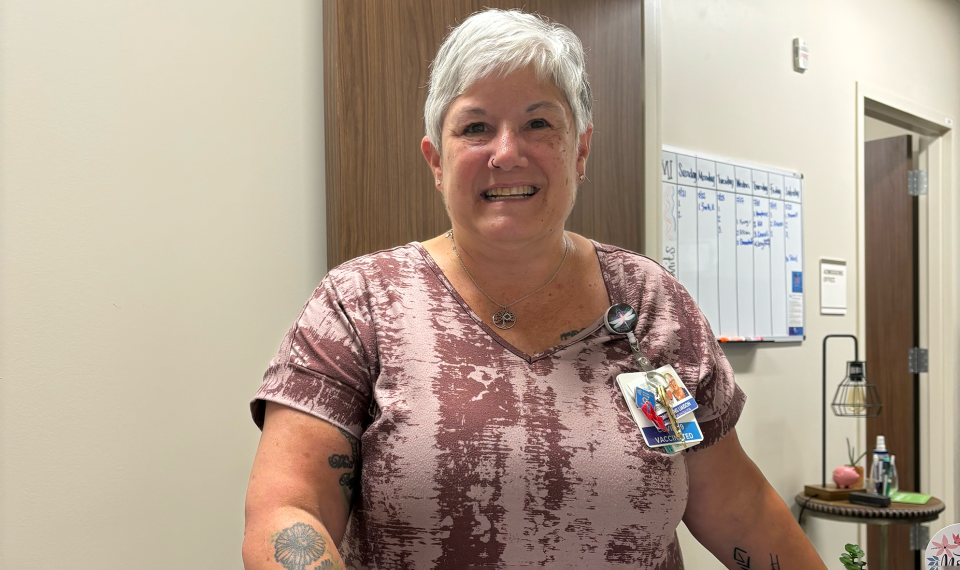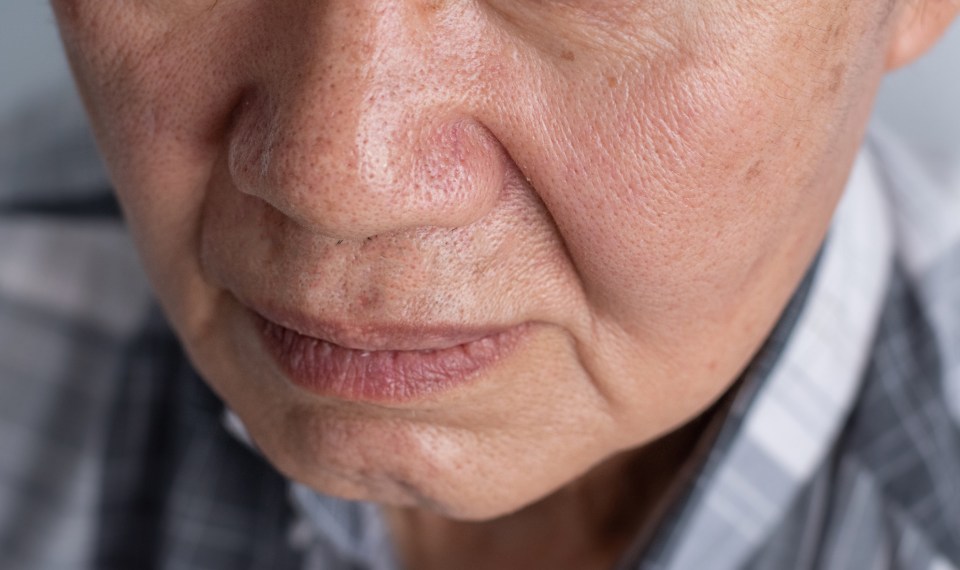Aphasia and dysphasia are communication impairments that can develop due to a stroke, traumatic brain injury or neurological disorder. Some medical sources suggest aphasia describes a total loss of language while the term dysphasia is defined as a partial loss of language.
What is Aphasia?
Aphasia is a neurological disorder that makes it difficult to both communicate and understand verbal and written language. It occurs when the area of the brain that controls language expression and comprehension is damaged. Although the most common cause of aphasia is stroke (25-40% of stroke survivors experience aphasia), brain tumors, head injury, infection and inflammation can also lead to aphasia. A diagnosis of aphasia does not indicate mental illness or intelligence impairment.
What is Dysphasia?
Dysphasia is sometimes described as a less severe form of aphasia that impacts only language comprehension, not expression. But, since dysphasia is often confused with dysphagia (a swallowing disorder), the term has been somewhat abandoned. Nowadays, many medical experts group aphasia and dysphasia together and simply refer to both as aphasia.
Types of Aphasia
There are many different types of aphasia. Diagnosis is usually determined by the area of the brain affected and the extent of damage. Some of the more common types of aphasia include expressive aphasia (Broca’s aphasia), Wernicke’s aphasia (receptive aphasia), anomic aphasia and global aphasia.
Symptoms of Aphasia
Aphasia symptoms are determined by the location and severity of the brain injury. Speech, speech comprehension, reading and writing may be affected. Symptoms include:
- Difficulty finding words
- Speaking slowly
- Making up words
- Telegraphic speech—speaking baby talk or omitting small words (e.g., “I hungry”)
- Mixing up words or word order
- Substituting words
- Difficulty with number concepts such as money or time
- Inability to answer simple questions
- Unable to understand speech, especially in groups or with background noise
- Difficulty comprehending other people’s conversations
- Problems with writing and spelling
- Unable to recite/repeat words and sentences
Diagnosing Aphasia
Physical, cognitive, and neurological exams may be used to diagnose aphasia.
- Brain imaging tests may be ordered to determine the location and extent of brain injury
- Sensory and nerve function studies are used to rule out other problems that could mimic aphasia
- Cognitive assessment tests may be performed to evaluate memory and identify cognitive impairment
- A speech-language pathologist (SLP) will perform a comprehensive communication examination to determine the individual’s ability to speak, understand, read, write, converse and express ideas.

Download this chart to use later
Treatment of Aphasia
Those with mild cases of aphasia may recover without treatment, but other times, speech and language therapy is needed to regain language skills. Outcome is best when treatment is initiated as soon as possible.
Treatment for aphasia is highly personalized since needs vary from person-to-person but usually includes:
- Exercises aimed at regaining lost communication skills
- Boosting remaining communication skills
- Learning new ways of communication
- Medications are available for some conditions that cause aphasia
Those with aphasia often feel frustrated and discouraged. Difficulty communicating can lead to feelings of isolation and loneliness. The National Aphasia Association lists the following tips for communicating with someone with aphasia:
- Make sure you have the person’s attention before beginning communication
- Minimize background noise such as TV, radio or other people
- Speak at a normal volume unless the person indicates otherwise
- Keep communication simple, yet adult. Emphasize key words, but don’t speak down
- Speak slowly and clearly
- Allow time for the person to speak. Don’t finish their sentences
- Use drawings, gestures, writing, and facial expressions with verbal communication
- Ask yes and no questions to confirm understanding
- Praise all speech attempts and downplay errors
- Engage normally and include those with aphasia in family and group conversations and decisions
- Encourage independence
- Avoid being overly protective
Recovery from Aphasia
Multiple factors impact aphasia recovery success, including:
- Brain damage severity
- Area of the brain that was damaged
- Age and overall health
- Other health or communication problems
- Motivation
Most stroke patients see speech improvement within the first six months following stroke as the brain heals. After this time, improvement slows, but is still possible. A 2019 study published in the Journal of Speech, Language, and Hearing Research revealed 95% of individuals with mild aphasia improved substantially and steadily in the first two weeks after stroke.
Individualized, specialized rehabilitative care initiated as soon as possible offers the best chance for recovery. Treatment should be started immediately in the acute care setting and continue to inpatient rehabilitation and out-patient therapy as necessary.
The content of this site is for informational purposes only and should not be taken as professional medical advice. Always seek the advice of your physician or other qualified healthcare provider with any questions you may have regarding any medical conditions or treatments.



